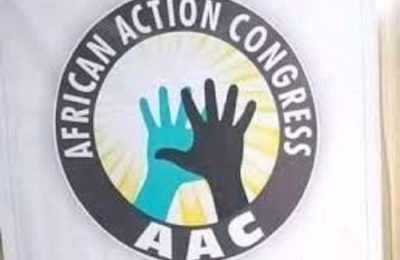As the global community reflects on the outcomes of COP29 in Baku, one resounding message emerges: the transition to a sustainable future must prioritise the needs of developing nations and cities.
With the announcement of a $300 billion climate finance package and a roadmap to scale this to $1.3 trillion annually by 2035, there is renewed hope for a just transition. Yet, hope must translate into action. For Africa, the path to climate literacy, resilience and sustainability must not only address environmental challenges, but also unlock profitable economic opportunities.
The conversation around a just transition often highlights the disproportionate impact of climate change on developing nations and cities. Rightly so. African nations, for instance, contribute less than 4% of global emissions yet bear the brunt of its consequences. However, climate justice cannot be reduced to reparations. It must include the tools, investments, and partnerships necessary for sustainable growth.
Cities across Africa, from bustling metropolises like Lagos to emerging urban hubs like Malawi, are already reimagining climate action as a driver of economic transformation. Initiatives in renewable energy, circular economy, and sustainable infrastructure are creating jobs, improving livelihoods, and reducing emissions. These efforts represent a blueprint for how developing nations can lead the way in the global green economy.
However, achieving a just transition requires more than good intentions. It demands robust partnerships and an answer to the critical question: “What’s in it for those who choose to invest in this transition?”
Incentivising Partnerships: What’s in It for Organizations?
For decades, collaborations with governments in developing regions have often been framed as philanthropic ventures. This mindset needs to evolve. Partnerships with these regions, especially in Africa, should be viewed as strategic business opportunities with measurable returns.
Take the carbon credit market as an example. African nations are rapidly scaling projects in renewable energy, sustainable agriculture, and circular economy systems, all of which offer high-quality carbon credits. These credits are not just compliance tools but lucrative assets in the evolving EESG-driven global economy.
Additionally, Africa’s young, urbanizing population and growing economies represent untapped markets for green solutions. Organizations that invest in innovative projects like waste-to-energy plants, sustainable housing, or clean transport systems gain not only financial returns but also the opportunity to shape the future of urban living and livelihoods on the continent.
When organizations approach these partnerships as mutually beneficial ventures, they not only contribute to global climate resilience but also strengthen their own bottom lines.
Climate action as a business proposition
At COP29, a clear argument was made: investing in Africa’s green initiatives is not just a moral imperative—it is smart business. Across the continent, public-private partnership models are being refined to ensure that both economic and environmental benefits are realised.
These partnerships can deliver:
- Access to investment-ready projects with scalable potential.
- Opportunities to meet and exceed global ESG benchmarks.
- Tangible financial returns through innovations like carbon credits and sustainable infrastructure development.
One critical takeaway from COP29 is the need for a paradigm shift: collaboration with developing regions must no longer be seen as mere social impact initiatives but as integral to global economic strategies.
Sustainability and Economic Planning
As African nations build on the momentum from COP29, integrating environmental sustainability into financial planning must become a priority. Governments are beginning to position sustainability as a core component of their economic development strategies.
One example is ensuring that offices focused on climate and circular economy are embedded within economic planning institutions. This integration aligns climate objectives with fiscal policies, making sustainability a driving force for long-term growth. Such an approach enables nations to leverage green projects for job creation, attract international investment, and ensure resilience across sectors.
The Way Forward
The journey from COP29 must focus on turning commitments into action. African governments, cities, and private sector players are already proving that climate challenges can be reimagined as opportunities for innovation and investment.
To accelerate this momentum, the global community must:
- Incentivise partnerships through access to finance and technology.
- Recognise the value of carbon markets as an economic driver.
- Foster collaboration that prioritizes shared prosperity and measurable impact.
Africa has the potential to be a global leader in the green economy. But this leadership will depend on forging partnerships that are ambitious, equitable, and mutually rewarding. The success of COP29 lies not just in the promises made but in the partnerships that will follow.
The question is no longer whether developing nations and cities will lead the way—they already are. The question is whether the world is ready to partner with them for a sustainable, prosperous future.
- Oshodi is the Special Adviser on Climate Change and Circular Economy to the governor of Lagos State.
READ ALSO: COP29: Lagos govt partners Access Bank, Carbonivity to accelerate climate investment







